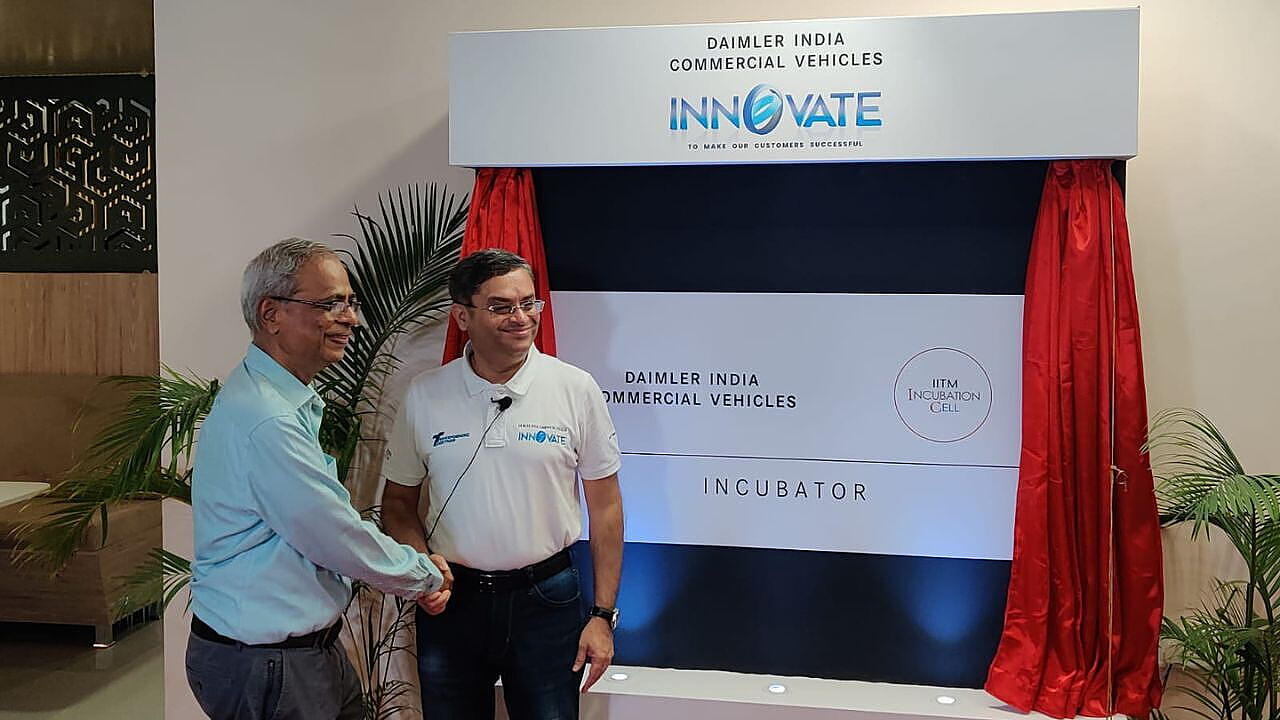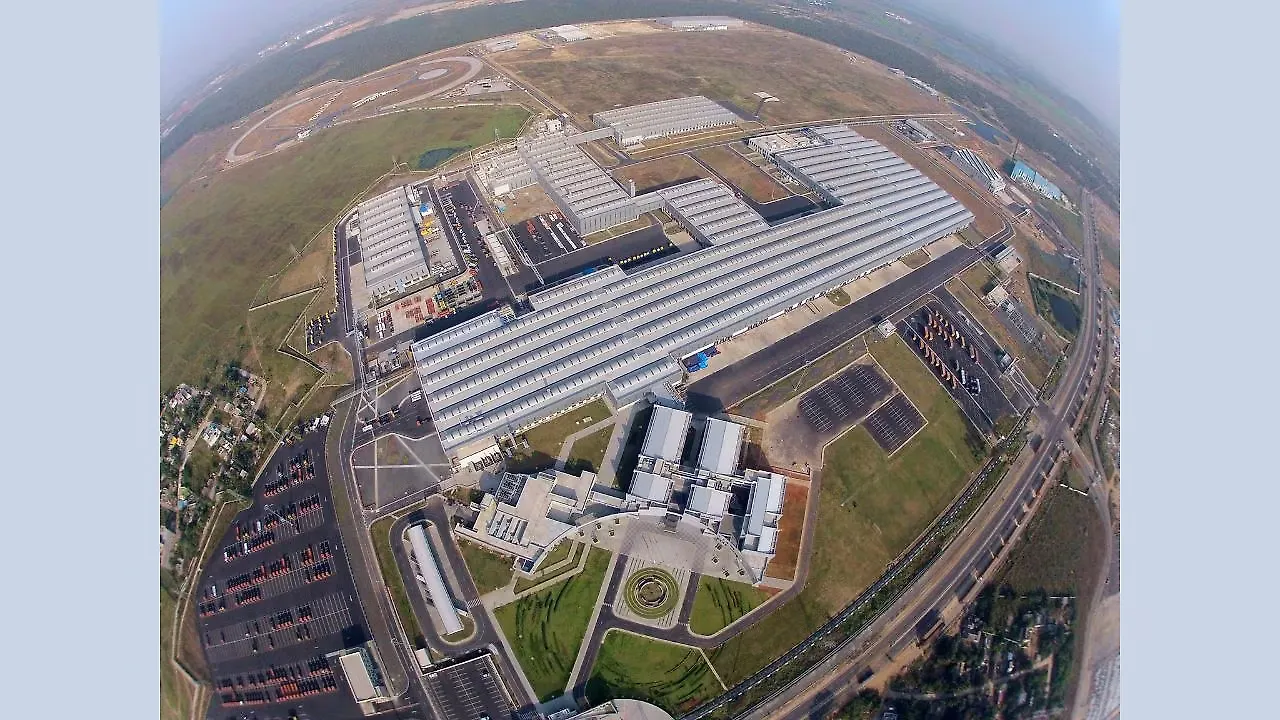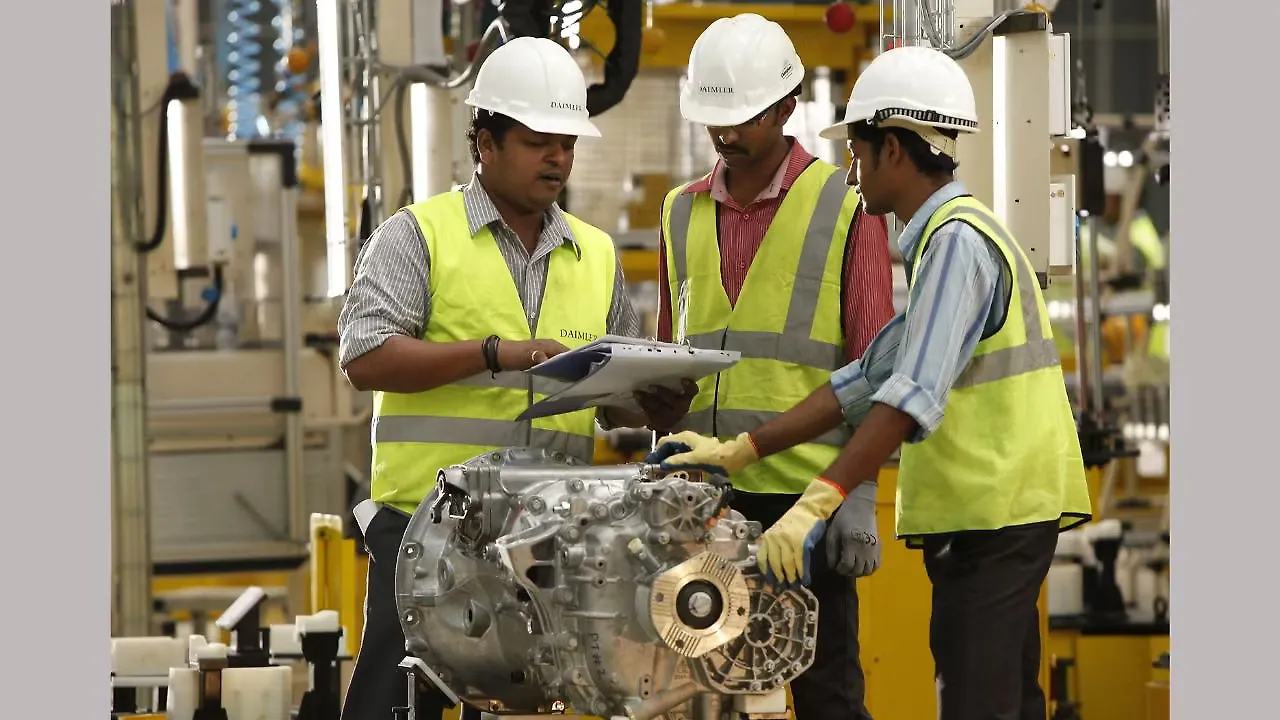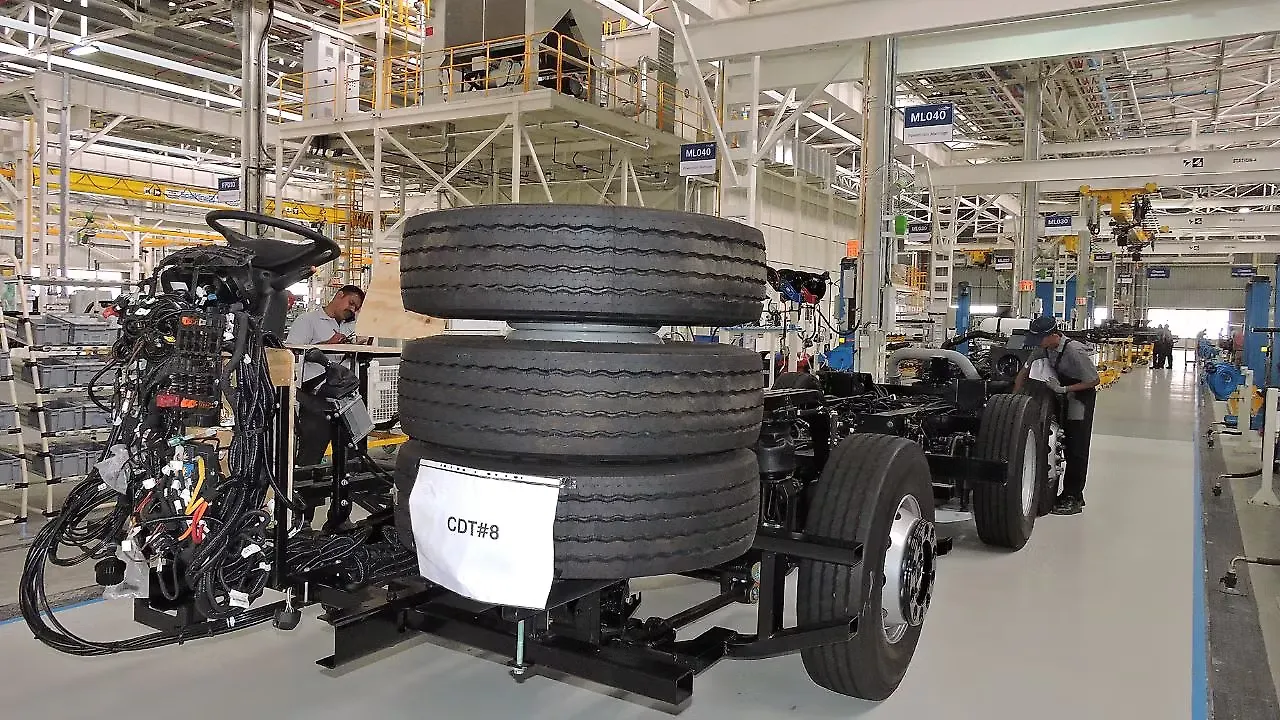
There is a truly deep bonding between Germany and the Indian Institute of Technology Madras (IITM).
The first, of course, is the origin which goes back over six decades to 1959, when the institute was set up by the Centre with help coming in from Germany. Over the years, it has churned out many scientists, researchers and innovators in several fields who have attained celebrity status.
One of Germany’s most celebrated residents is the Daimler Group which has been part of the mobility ecosystem for over 125 years with its stable churning out cars, trucks and buses. Its Indian commercial vehicle arm, DICV (Daimler India Commercial Vehicles), is celebrating ten years of operations in the country, and it was only appropriate that it signed an MoU with IIT Madras Incubation Cell (IITMIC) to set up a technology epicentre.
It is an established fact that innovation thrives when faculty, students and industry professionals interact in any environment, be it formal/informal. With 16 departments, over 600 globally acclaimed faculty, 3,500 research scholars, hi-tech laboratories, testing facilities, innovation centres and a vast pool of extraordinary students, IITM is virtually a beehive for academic excellence, research and innovation.
The IIT Madras Research Park is also the country’s first university-based research park, and its proximity to IITM allows researchers to optimally leverage the industry-academia collaboration as well as the best brains across faculty, research scholars and students.
Key Drivers For Daimler
DICV, meanwhile, was drawn towards IITMIC, which has incubated over 275 startups during the last decade at a staggering success rate of over 82% compared to the global level of 10%. According to Prof Ashok Jhunjhunwala, who conceived of the research park and is now President – IIT Madras Research Park, 15 companies in this 82% pool have been “super success” stories, while over 40 companies have achieved the “good success” ranking, and the balance has been successful. The cumulative valuation of these companies is estimated at INR 34,000 crore, and the investments less than INR 30 crore.
As fossil fuels give way to electric and hydrogen vehicles in the near future, innovation and deep-tech startups will need to play a big role going forward. IITMIC aims to get into the ‘rapid scaling’ of innovation in the mobility space. While the BharatBenz brand marks the fusion of Indian engineering and German DNA, it was only appropriate that Daimler, with its global/local expertise in engineering, research, development, manufacturing and sourcing, found the right slot through DICV in this Incubation Cell.

Giant Leap
DICV was the ideal ally for IITMIC since it had been on the lookout for talent to localise parts and enhance indigenisation levels while establishing the manufacturing plant in Oragadam, near Chennai. The key was to make products suitable for Indian conditions. The company, in a way (and not in the strict definition of the term), nurtured start-ups by identifying suppliers and making them part of the core vendor group.
DICV also helped out many component makers with the development of the key 5Cs – cylinder block, cylinder head, connecting rod, camshaft and crankshaft. It was for the first time in the history of Daimler that these were localised along with transmission parts. Over time, these vendors have become a single/major source not only for DICV but Daimler’s plants worldwide.
Satyakam Arya, MD & CEO, DICV, recently told Mobility Outlook that the company had shipped out over 200 million parts and become an exporter of transmissions for medium-duty vehicles. This intent is continuing with IITMIC now but different from the end results: earlier, the initiative was for Daimler alone, and now it is about incubating talent for the mobility universe by handholding startups.
Start-up 1.0
As part of its effort to increase local content with German quality, DICV decided to start the process four years before production began at its Oragadam plant near Chennai. Sourcing teams from Stuttgart and DICV began auditing Indian suppliers on-site while covering a host of functions such as R&D, engineering, production, quality and logistics.
The then Vice-President (Procurement, Pre-Series Supplier Management & Logistics) of DICV, Erich Nesselhauf — who went on to become MD and CEO and was Arya’s predecessor — had said nearly a decade ago that localisation efforts began with understanding the Indian supplier. This study revolved around cost, technology know-how, and logistics.
What is interesting is that only 5% of the suppliers are global companies, while Indian entities take up the lion’s share. Usually, MNCs bring along with them their preferred vendors, but in the case of DICV, it was categorical that local suppliers be upgraded to the global level, which called for investments in money, time and training to address skill gaps.

For instance, when a component is localised, the general tendency of any global company is to make it as per the quality requirements of the local market. This is largely done to match the prevailing price points. However, DICV decided to map the quality levels of the components used by its plants in Germany and Japan that make Axor and Fuso platforms. The parent company partially used common parts to benefit from the synergies. Further, it consistently promoted knowledge-sharing by conducting workshops at overseas plants. Suppliers were also trained onsite, not only in the technologies but in DICV’s specific processes and systems.
According to the then MD & CEO Marc Llistosella, another key ingredient for a supplier is management skills beyond product and process capabilities. He believed that even if the technology is delivered, only companies with good management can grow with it sustainably.
DICV has, therefore, worked closely with its suppliers' managers and technical experts from the Daimler AG network to define and establish their processes and quality. All these initiatives have made Indian suppliers blur geographies and expand their business to many global destinations.
Deep Kapuria, Chairman of Hi-Tech Gears, had said a decade ago that with DICV, his company realised the next curve of the relationship: from 'manufacturing to print' to 'joint development and manufacturing.' Any global company generally prefers Tier-1 companies to forge partnerships with a foreign entity for sourcing components keeping the technological edge in mind. However, Daimler chose those without any such tie-ups and extended a helping hand from the beginning until the parts were commercially produced. This approach marked a major shift and created a benchmark in the OE - supplier relationship.
Managing Director of the Coimbatore-headquartered Craftsman Automation, S Ravi, said he was “thrilled” when DICV came visiting to audit his company for sourcing components. He just could not believe that Daimler would actually outsource the cylinder block and head as this was done in the company's long history. Initially, he thought it was a benchmarking for the price, but it was not so, and Ravi was over the moon when he bagged the mandate.

Start-up 2.0
Under its Start-up 2.0 initiative, DICV, along with IITMIC, will co-incubate ten to 15 start-ups related to mobility, manufacturing, IoT and sustainability. The duo started the process by incubating two mobility-based start-ups - Tutr Hyperloop and Ozone Motors.
Tutr is founded by Dr Aravind Bharadwaj (former Mahindra Research Valley, Automotive Infotronics, Ashok Leyland, Continental AG, TVS and General Motors Research Labs) and Balaji Rangachari (former Mahindra Group, ITC Agrotech and Nestle). Tutr develops and demonstrates safe, reliable hyperloop travel and provides an affordable, high-speed, on-demand transportation system for passengers and goods.
Founded by Deepak Mohan, Ozone Motors makes not only electric vehicles but also works on building sustainable modes of transportation systems and related solutions for the modern colonies.
Conclusion
What DICV, along with Daimler Group, did during the early part of the decade was ‘Start-up 1.0’, and now, with IITMIC, it is beginning its Start-up 2.0 innings. The common thread for both entities is their vision: technology should be created and leveraged to transform the entire ecosystem. It is only a question of time for the mobility ecosystem to see path-breaking technologies happen in the near future.
Also Read:
“In The Next Ten Years, We Will Definitely See CV Market Realising Its Potential”
DICV Joins IIT Madras Incubation Cell To Raise Start-ups In Future Mobility